Home > Brazilian cotton
Brazil’s vast geographical and climatic diversity offers ideal conditions for a wide variety of crops, making it no surprise that cotton thrives here. Today, Brazil is one of the world’s largest producers and exporters of cotton, a testament to its legacy of growth, resilience, and forward-thinking practices.
With a history of adaptability and creativity, Brazil has risen to become one of the largest producers and exporters of cotton globally. The seeds planted in our fields today embody responsibility, respect, quality, and ingenuity.
The constant pursuit of innovation is not new.
It began decades ago with the resilient and determined spirit of our farmers. From being a major importer, Brazil has become one of the world’s largest cotton exporters, but it wasn’t without crises, pests, rebuilding, and growth along the way.
Indigenous peoples of Brazil were already using cotton fiber to produce rustic fabrics before the Portuguese arrival.
Indigenous peoples of Brazil were already using cotton fiber to produce rustic fabrics before the Portuguese arrival.
Brazil gains prominence in the global market as one of the largest producers and exporters of cotton.
This small insect brought in from abroad devastated cotton fields, especially in the Northeast, destroying entire growing areas.
800,000 workers lost their income due to the insect infestation. Changes in Brazil’s economic policy also contributed to a more than 60% reduction in the planted area.
Farmers began to rebuild, using new technologies and investing in the country’s Midwest, where cotton adapted well, creating a promising future.
Abrapa (Brazilian Cotton Growers Association) was founded, an entity that organized farmers and helped disseminate good agricultural practices and implement innovations in cotton cultivation.
ABR (Responsible Brazilian Cotton) is founded, a socio-environmental certification that certifies sustainable practices in national production.
Abrapa creates Sou de Algodão, a unique movement in Brazil that was created to encourage responsible fashion and an increase in fiber consumption in the domestic market.
Cotton Brazil is established as the brand for Brazilian cotton on the world market, promoting events, missions and various actions in countries that are customers of our fiber, with headquarters in Singapore.
The processing units now also receive socio-environmental certification, through the ABR-UBA program.
SouABR is founded, an unprecedented traceability program in the Brazilian textile industry. Since then, collections have been launched in partnerships with major retailers in the country.
Abrapa creates Sou de Algodão, a unique movement in Brazil that was created to encourage responsible fashion and an increase in fiber consumption in the domestic market.
The logistics stage is also incorporated into the ABR program, receiving socio-environmental certification with ABR Log.
In partnership with the Ministry of Agriculture and Livestock (Mapa), Abrapa creates the Brazilian Cotton Quality Program, which officially certifies the veracity of the High-Volume Instrument (HVI) reports issued by the country’s laboratories.
Did you know that only 2% of Brazil’s territory is dedicated to cotton cultivation?
Yet, the numbers are astonishing:

1.99 million ha of planted area
(+19,5%)*
*compared to the last harvest
2023/24 season

368 million tons of cotton lint produced (+13,4%)*
*compared to the last harvest
2023/24 season

1,8 kg/ha in productivity
2023/24 season

66,1% of native preservation and conservation areas
2023/24 harvest.
From planting to export, our cotton receives intensive attention in a vertically integrated and demonstrably responsible process. The socio-environmental certification at every step reflects the Brazilian cotton industry’s commitment to constant sustainability improvements throughout the supply chain.



More than 90% of our cotton is produced under what we call a “rain-fed” system, without artificial irrigation. This method not only conserves water resources but also demonstrates the adaptability of Brazil’s climate. We are the world’s number one in productivity under this system!
Constant innovations contribute to greater sustainability and production efficiency.
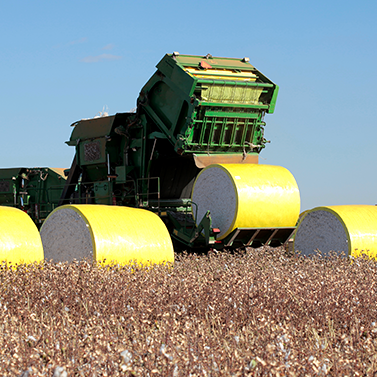

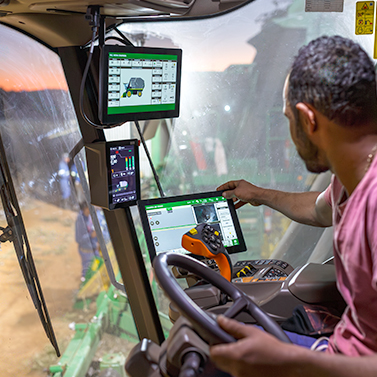
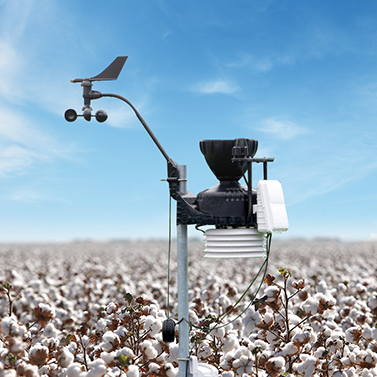
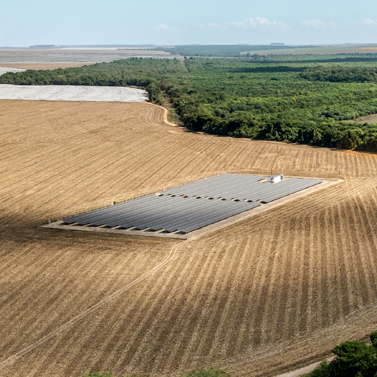

Brazil is one of the few countries in the world that offers bale-to-bale traceability. This system provides access to information about each harvest, as well as quality data. Learn everything about traceability.
Our cotton undergoes continuous improvement, evidenced by our quality data. From investment in technology for seed development to the quality control program – through which 100% of the fiber undergoes HVI analysis – everything is focused on evolving, season after season.

Brazil is a country of continental dimensions and offers an ideal geography and climate for cotton cultivation. Cotton is grown in many states across the country, each with its own planting and harvesting period. Discover:

The farm is where cotton’s long journey begins. This is where many people dedicate their lives to ensuring the world’s industry is supplied with quality and transparency. Meet some of the Brazilian cotton-producing families from ABR.




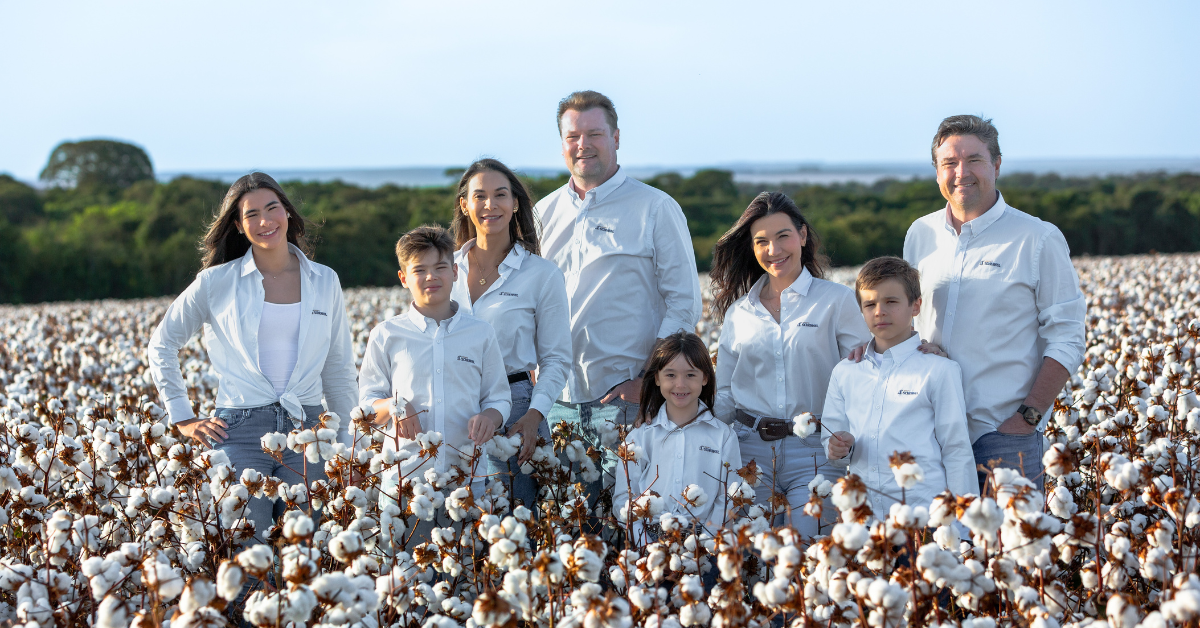
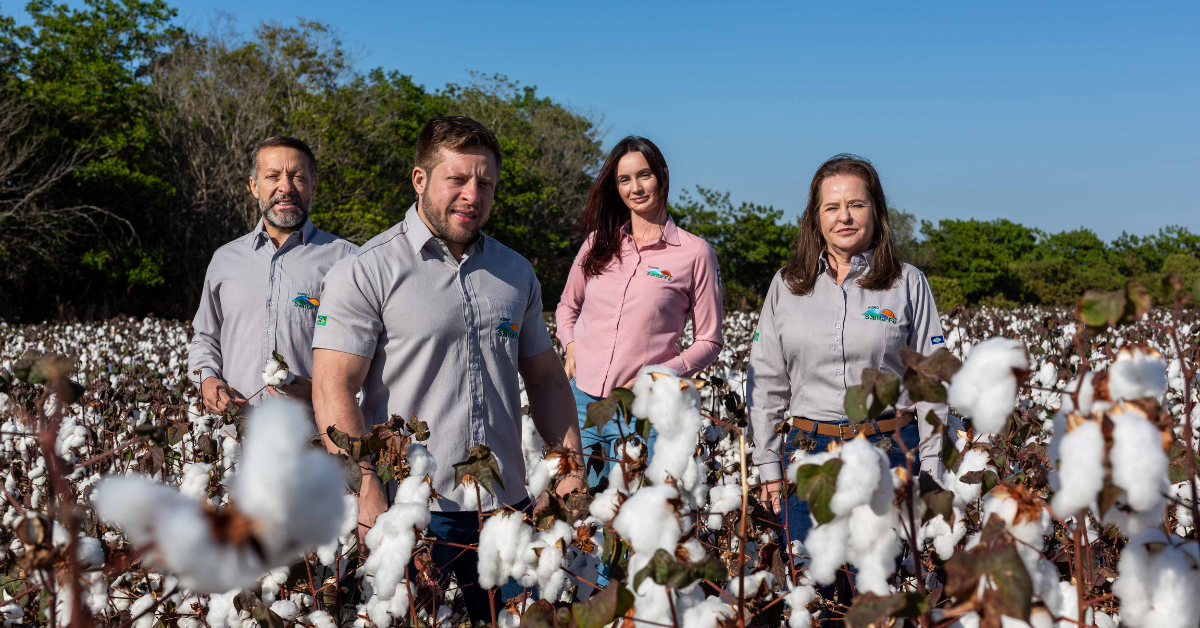
Access the full listing of ABR-certified and BCI-licensed Production Units.